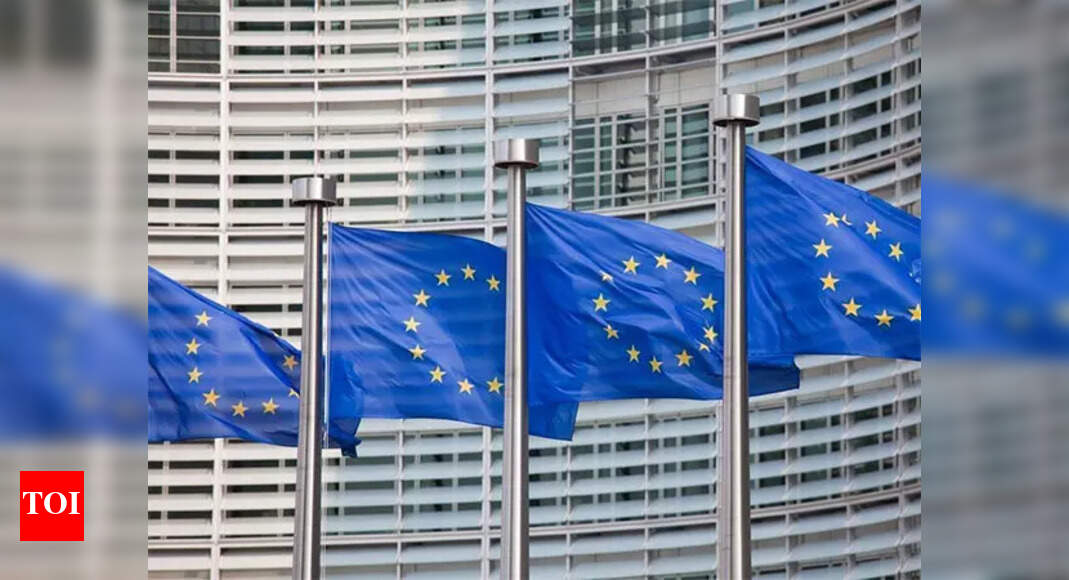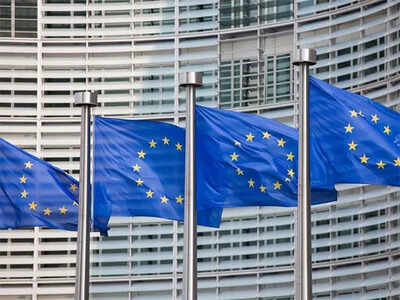The European Union unveiled its 18th package of sanctions against Russia, aiming to further squeeze Moscow’s oil revenues and financial networks over its ongoing war in Ukraine. Approved on Friday, the new measures include a series of toughened restrictions focused largely on the energy sector, shipping, and financial dealings.Here’s a what the latest sanctions include:
1. Russian oil: A fresh price cap
At the heart of this package is a new price cap on Russian oil. The EU plans to impose a moving price ceiling, pegged at 15% below the average market price of Russian crude.
The measure takes effect from 3 September, with a 90-day transition period for existing contracts. Under the new rules, any crude purchased above the cap cannot be shipped, insured or reinsured by EU firms, as per a Reuters report.The European Union and Britain had been urging the G7 to reduce the existing $60 price cap on Russian oil, arguing that falling oil futures had rendered it ineffective. However, opposition from the United States stalled any collective action, prompting the EU to act independently. Still, the bloc faces limits in enforcing the measure, as oil is predominantly traded in US dollars and payment clearing is largely controlled by American banks.After a six-month grace period, the EU will no longer import petroleum products made from Russian oil, even if they’re refined elsewhere.
3. Targeting the ‘Shadow Fleet’
In an effort to disrupt Russia’s workaround using ageing tankers:
The EU also blacklisted a private operator of an international flag registry and an entity involved in Russia’s liquefied natural gas (LNG) sector, though it did not disclose their names.
4. Nord Stream: Total cut-off
The EU will ban all transactions linked to the Nord Stream gas pipelines, which run under the Baltic Sea. This includes the provision of goods and services to the infrastructure.
5. Financial sector: A blanket ban
In a major escalation, the EU will now prohibit all transactions with Russian financial institutions, many of which are already cut off from SWIFT.
6. Export restrictions and new blacklist entries
7. Delays and diplomatic hurdles
The approval of this package wasn’t smooth. Slovakia and Malta initially delayed the rollout:
How did India react?
The ministry of external affairs on Friday hit out at the European Union’s “unilateral” sanctions on Russia, criticising the bloc’s “double standards” in energy trade. MEA spokesperson Randhir Jaiswal said in a statement in post on X, “We have noted the latest sanctions announced by the European Union. India does not subscribe to any unilateral sanction measures. We are a responsible actor and remain fully committed to our legal obligations.”The MEA further emphasised that ensuring energy security is a top priority for the Indian government to meet the essential needs of its citizens. “We would stress that there should be no double standards, especially when it comes to energy trade,” the statement added.The EU’s latest sanctions against Russia over the Ukraine war include measures targeting an Indian refinery partly owned by Rosneft. The Russian energy giant holds a 49.13% stake in Nayara Energy Ltd, formerly Essar Oil. Nayara operates a major refinery in Vadinar, Gujarat, with an annual capacity of 20 million tonnes, and runs over 6,750 fuel stations across India.

